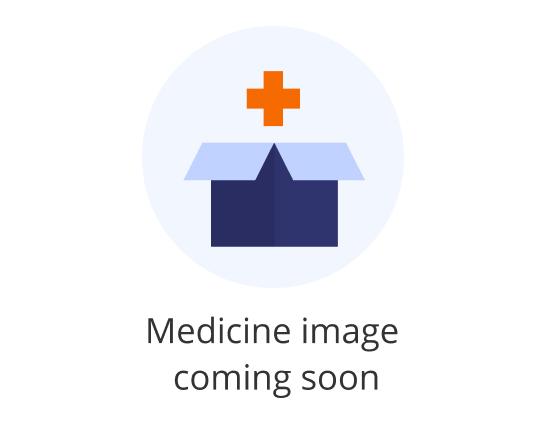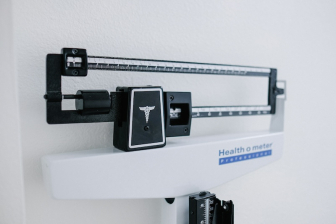Essential Alzheimer's Medicines to Begin at Diagnosis for Optimal Results
Last updated: 04 December 2024

You can legally access new medicines, even if they are not approved in your country.
Learn howeEarly intervention in Alzheimer's disease is essential. Especially if the goal is slowing cognitive decline and maintaining quality of life. The World Alzheimer Report highlights that starting certain treatments, such as cognitive enhancers, immediately after diagnosis can significantly increase their effectiveness 1.
However, the treatments you’re offered for early-stage Alzheimer's can vary. Not only depending on their proven efficacy but also on what’s approved and available in the Netherlands. It's important to know all your options. Especially since it’s possible to access medications from abroad, if prescribed.
In this article, we’ll explore which Alzheimer's medicines can be initiated from the moment of diagnosis. Whether they’re available in the Netherlands or not.
Standard early-stage Alzheimer's medicines available in the Netherlands
From the moment you are diagnosed with Alzheimer's, there are some medicines that can become relevant for you. Whether you will get a prescription for them is for your doctor to decide, on the basis of your personal situation.
As of 2024, there are two main groups of Alzheimer's medicines available in the Netherlands. They are all symptomatic medicines.
Symptomatic medicines for early Alzheimer's
-
Cognitive enhancers (cholinesterase inhibitors)
This category of medicines is focused on improving cognitive skills, attention, and memory. That's why these medicines are also referred to as cognitive enhancers. According to the World Alzheimer Report, they are considered effective interventions in mild dementia 1. Here are the ones currently available in the Netherlands:
-
Galantamine
-
Galantamine is a cognitive enhancer used to treat mild to moderate Alzheimer's disease. It works by increasing levels of acetylcholine, a neurotransmitter involved in memory and learning. The medicine also inhibits acetylcholine's breakdown and enhances receptor sensitivity. Available in tablet, extended-release capsule, and liquid forms, galantamine is typically started from the moment of Alzheimer's diagnosis to help improve mental function. However, galantamine is not a cure for Alzheimer's. It also doesn't stop the disease progression.
-
-
Donepezil
-
Donepezil is another medicine used to treat mild to moderate Alzheimer's disease by improving cognitive function. It works by inhibiting the breakdown of acetylcholine, similar to galantamine. Available in tablet and orally disintegrating forms, donepezil is often prescribed early in the disease to improve symptoms. Donepezil is not a medicine that can slow down Alzheimer's disease, or cure it.
-
-
Rivastigmine
-
Rivastigmine is a medicine prescribed for mild to moderate Alzheimer's disease. It works by inhibiting the breakdown of acetylcholine and butyrylcholine. Both are neurotransmitters important for memory and cognition. Available in capsule, liquid, and transdermal patch forms, rivastigmine is typically initiated in the early stages of Alzheimer's to help improve symptoms.
-
Other symptomatic medicines for early-stage Alzheimer's
In some cases, soon after diagnosis, medicines may be prescribed to target specific symptoms of the disease. Whether these are relevant depends on the patient's specific disease manifestation. Some examples of symptomatic medicines are:
-
Antidepressants and anti-anxiety medicines
-
Depression and agitation are strongly associated with Alzheimer's disease. They can exacerbate the patient's cognitive decline and quality of life 2. Your treating doctor will decide whether in your case antidepressants are recommended. If so, the class of antidepressants typically prescribed in early Alzheimer's is SSRIs. That's due to their comparatively lower risk of side effects and medicine interactions 2.
-
-
Sleep aids
-
Sleep disturbances affect up to 25% of people with mild to moderate Alzheimer's 3. As they can take a toll on your body, your treating doctor may advise lifestyle changes to help improve your sleep. If no sufficient effect is achieved with this approach, you may be prescribed medicines that can improve your sleep.
Novel Alzheimer's medicines applicable from the moment of diagnosis
While some new medicines for early Alzheimer's have received approval in the US and the UK (and soon, in the EU), they are not yet available in the Netherlands as of December 2024. Many doctors in the Netherlands may not be aware that they are allowed to prescribe these medicines. Even before they receive official EMA approval or become locally available. That's why if you've recently been diagnosed with Alzheimer's disease, it may be worth discussing these treatment options with your healthcare provider. Ultimately, your treating doctor is the only one who can determine the relevance of these treatments to your specific situation. However, a conversation is always worthwhile.
Lecanemab (soon to be available in the Netherlands)
Leqembi (lecanemab) is a medicine that works by removing beta-amyloid plaques from the brain. It aims to slow down the progression of the disease.
Lecanemab was first approved by the FDA in 2022. In 2024, also the MHRA in the UK gave the medicine its green light. While Leqembi was initially rejected by the EMA due to concerns related to potential serious side effects, that decision was reevaluated. In November 2024, the CHMP has made a positive recommendation for granting lecanemab EMA approval6. It can take up to 3 motnhs until the approval becomes official, and after that each EU member state will follow its own timeline for launching the medicine locally. For patients in the Netherlands, this means that lecanemab could be available within 2025.
Benefits of starting treatment with lecanemab early
Recent results from the Phase 3 Clarity AD trial suggest that starting lecanemab treatment early may be more effective in slowing disease progression. Patients with lower levels of tau pathology showed significantly better outcomes, with 93% reaching normal amyloid plaque levels after 18 months. As a comparison, this was achieved by 57% in the higher tau group, supporting the idea of early intervention 4.
Donanemab (not available in the Netherlands yet)
Kisunla (donanemab) is the most recently approved Alzheimer's medicine in the world. It received FDA approval in the USA in July 2024 and is currently being evaluated by the EMA. In October 2024, donanemab also received approval in the UK.
Donanemab works by removing beta-amyloid plaques from the brain. Similar to Leqembi, it aims to delay cognitive decline in early Alzheimer's patients. The main differences between donanemab and Leqembi (lecanemab) is that it needs infusions every 4 weeks instead of every 2, and it targets amyloid plaques after they’ve clumped together, while Leqembi targets them earlier as they start forming.
Benefits of starting treatment with donanemab early
Dr. David Hyman, CMO at Eli Lilly, highlights that clinical trial data suggest the earlier a patient receives treatment with donanemab, the greater the impact on their condition 5. A study focusing on patients in the earliest stages of Alzheimer's found that donanemab was associated with up to a 60% slowing of cognitive decline. Some models indicate it could potentially reduce decline by as much as 90% if treatment is initiated early enough 5.
Can you get the newest treatment options for early Alzheimer's in the Netherlands?
Considering that all the latest Alzheimer's medicines are intended for use as soon as possible after diagnosis, waiting for them to become available in the Netherlands can be frustrating.
The good news? If your treating doctor considers you eligible for lecanemab or donanemab, they can already prescribe these medicines to you. With a prescription and Artsenverklaring, our expert team at Everyone.org can help you find and, upon approval of IGJ, import the treatment you need right away.
Get in touch to find out more.
References:
- The benefits of early diagnosis and intervention. Alzheimer's Disease International, Accessed 22 October 2024.
- Antidepressants in Alzheimer’s Disease: A Focus on the Role of Mirtazapine. Pharmaceuticals, 16 September 2021.
- Alzheimer's: Managing sleep problems. Mayo Clinic, Accessed 22 October 2024.
- AD/PD 2024: Leqembi data supports early treatment initiation for better outcomes. Clinical Trials Arena, 11 March 2024.
- Park, Alice. A New Alzheimer's Drug May Be the Most Effective One Yet. Time, 2 July 2024.
- Leqembi recommended for treatment of early Alzheimer's disease. EMA, Accessed 19 November 2024.





